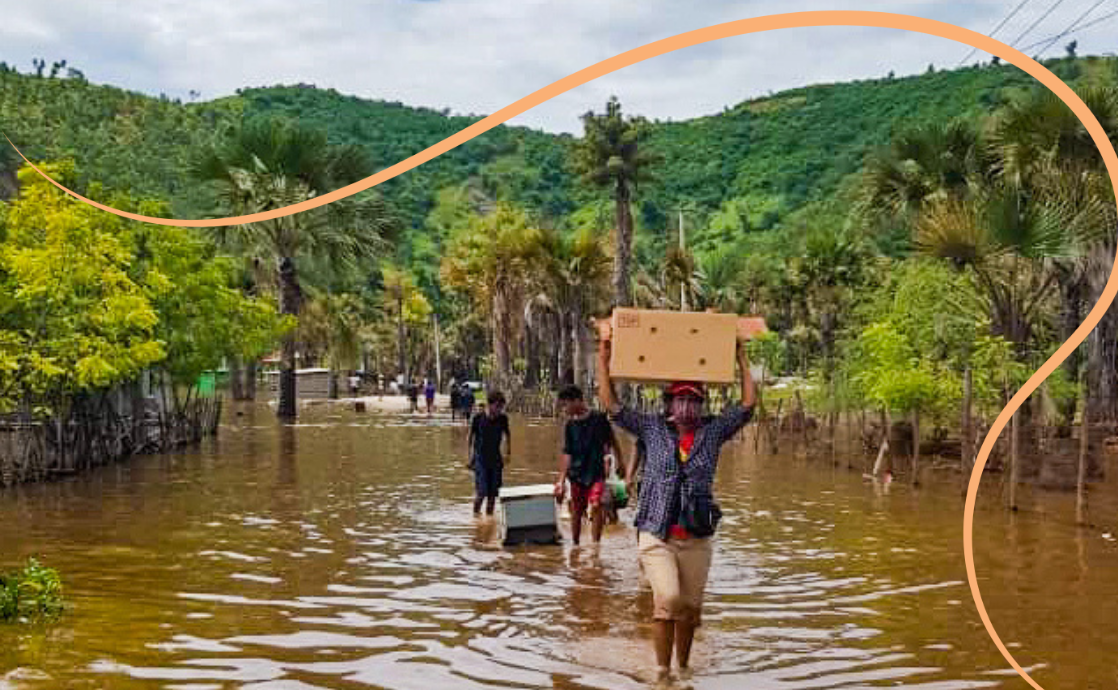As we navigate the complexities of our modern world, can a natural disaster serve as a catalyst for the unity of a nation? This question emerged poignantly in Timor Leste, where a harrowing cyclone intertwined with the emergence of a pioneering institution—the nation’s first National Spiritual Assembly. The Bahá’í teachings illuminate the multifaceted processes of community building, emphasizing that even amidst chaos, profound unity can flourish. This article delves into how the fallout from a cyclone unknowingly paved the way for social cohesion and the establishment of an influential Bahá’í administrative body.
The Cyclonic Prelude: Contextualizing Natural Disasters
Navigating through the torrential storms of societies, natural disasters often manifest as harbingers of transformation. In Timor Leste, the cyclone not only wreaked havoc on infrastructure but also on the societal fabric, revealing vulnerabilities and grievances that lay dormant. The Bahá’í Faith teaches that trials and tribulations can be instrumental in unveiling the latent strengths of communities. It is during these testing times that the importance of unity becomes irrefutable, prompting individuals to look beyond their immediate concerns and seek collective solutions.
Awakening the Spirit of Unity
The devastation wrought by the cyclone catalyzed a communal reevaluation. As families found themselves displaced and lives interrupted, the call for reinvigorated solidarity resonated deeply. The Bahá’í teachings articulate a central tenet: the oneness of humanity. This perspective underscores the necessity of collective action and mutual support, especially in tumultuous times. As individuals congregated to assist one another, that sense of shared purpose became palpable, kindling aspirations toward a unified national identity.
Formation of the National Spiritual Assembly: Embracing Diversity
In the aftermath of disaster, the establishment of the first National Spiritual Assembly represented not merely an administrative milestone but an embodiment of the community’s aspirations for a more harmonious future. This new institution entailed a diverse range of individuals—representatives from various regions, backgrounds, and experiences, each contributing their unique perspectives to the fabric of decision-making. The Bahá’í teachings elucidate that diversity is a source of power and that through the harmonious convergence of different viewpoints, the most effective solutions can be forged.
A Framework for Governance: Administrative Principles of the Bahá’í Faith
At the core of the Bahá’í administrative framework lies the principle of consultation. This process emphasizes respectful dialogue and collective deliberation, fostering an environment where every voice is valued. In Timor Leste’s newfound National Spiritual Assembly, this principle became vital. The parallel between responsive governance and the principles of unity became evident. Members quickly realized that addressing the needs of a diverse populace required active participation and acknowledgment of each individual’s contributions.
Towards Community Empowerment: Initiatives and Programs
The formation of this Assembly opened new avenues for community empowerment through various initiatives aimed at healing the wounds inflicted by the cyclone. Educational programs addressing both practical skills and spiritual development emerged, reconstituting a sense of purpose among the populace. These initiatives, informed by Bahá’í principles of education, sought to dispel ignorance and foster the capacity for self-reliance, equipping individuals to emerge resilient in the face of adversity.
Cross-Cultural Dialogues: Building Bridges
In the convergence of cultures within Timor Leste, the National Spiritual Assembly sought to transcend historical divisions through collaborative dialogues that encourage understanding and respect among diverse ethnic groups. The teachings of the Bahá’í Faith advocate for the elimination of prejudice, fostering an environment in which cultural identities are celebrated rather than marginalized. As such, the assembly became an incubator for cross-cultural interactions, aimed at reinforcing the bonds of community through shared experiences and aspirations.
Lessons in Resilience: Reflections on Spiritual Growth
The transition from cyclone-induced chaos to the establishment of a National Spiritual Assembly encapsulates an enlightening narrative of resilience. The Bahá’í Faith emphasizes that spiritual growth often emerges from adversity. As community members engaged with one another, the cyclone’s aftermath provided fertile ground for transformative personal and communal development, illuminating pathways toward sustained growth and unity.
Charting the Future: The Role of Youth and Community Participation
In this evolving landscape, the role of youth becomes paramount. The Bahá’í teachings hold that the youth are the torchbearers of progress and innovation. Their active participation in the National Spiritual Assembly’s decision-making processes engenders a forward-looking perspective, ensuring that the array of societal needs continues to be addressed with relevance and sensitivity. Engaging young people can amplify the collective voice, paving the way for a nation resilient in its diversity.
Conclusion: From Despair to Hope
As we reflect on the journey from cyclone to the establishment of Timor Leste’s first National Spiritual Assembly, a vibrant tapestry of resilience and unity emerges. This narrative exemplifies the powerful interrelationship between calamity and the formation of cohesive, purposeful communities. The Bahá’í teachings illuminate the path forward, urging individuals and societies to embrace their interconnectedness, fostering environments where hope and diversity can thrive. In a world rife with challenges, the journey taken by Timor Leste stands as a testament to the enduring power of unity in the face of adversity.
